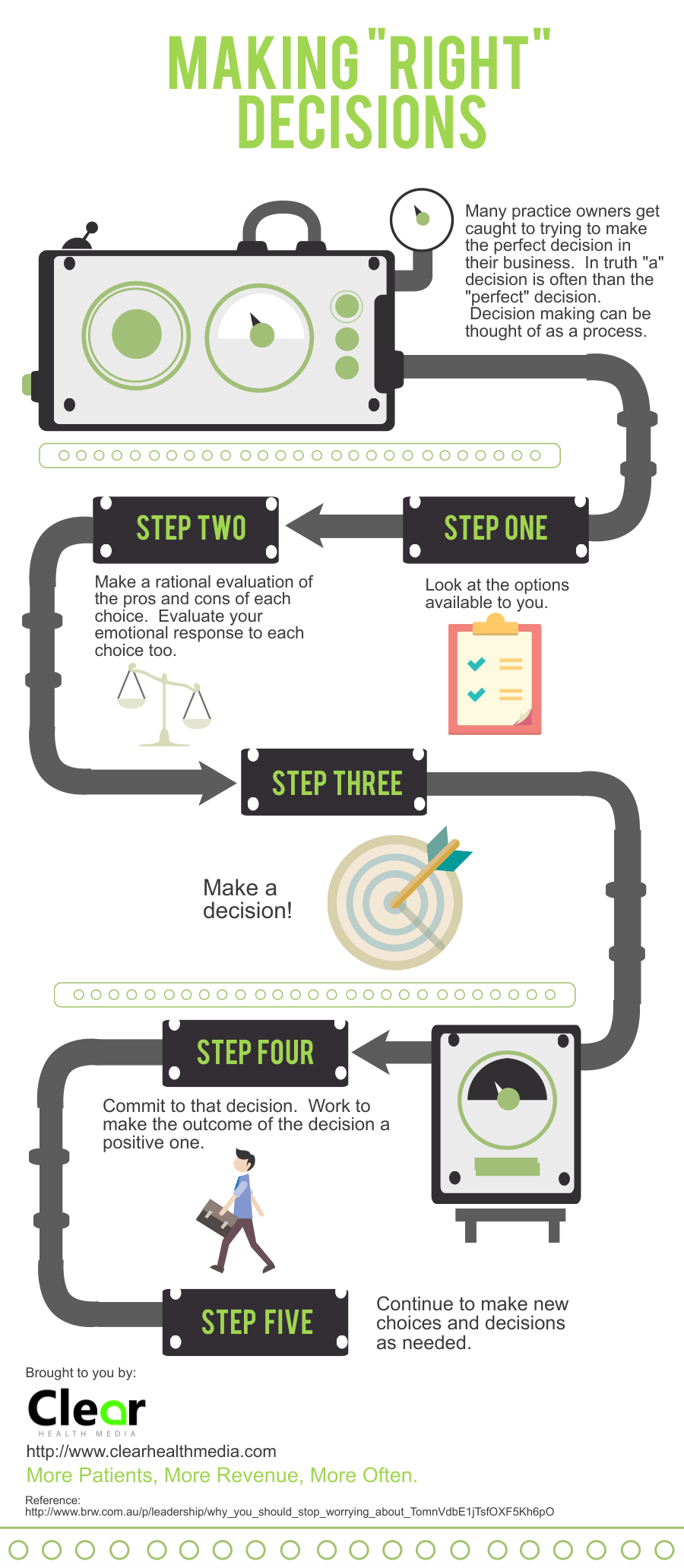The biggest challenge that we find when we are working with clients is motivating the practice owner to make a decision, usually around approving content or images for their marketing campaign. Often they’re concerned about getting their marketing message just right before they take action.
It’s important to remember that making a decision in your business is not a single event. Decision-making is an ongoing process needs to be evaluated in light of changes and responses to earlier decisions. Getting hung up on making the right choice can often mean people never made any decision, leading to a phenomenon known as opportunity cost.
Opportunity cost is the (often difficult to measure) cost incurred when an action is not taken because of the failure to make a decision or because resources are tied up in less productive activities. This is the basis of the saying “imperfect action trumps perfect inaction every time”.
When working with the practice marketing is more important to simply take some action and measure the results. You then analyse the results and if necessary make some modifications before taking further action and measuring the results.
While there have been examples of people making horrendous marketing mistakes that irreparably damaged a business, this situation is incredibly rare and the reality is with some common sense these situations can be avoided.
At most for most businesses, the risk is a loss of a small amount of money if the campaign is a complete failure. Even then the knowledge gained from the experiment will be invaluable in the long-term process of marketing your practice.
So next time you’re faced with a difficult decision in your business realise that most of the time the outcomes of such decisions are not irreversible, and that you are better off making a decision and then putting your energy into making the outcome a success.
Stanford professor of neuroscience Baba Shiv is an expert in how we make decisions. He explains that the reality is that it is impossible to determine in advance which outcome will be optimal based upon the complexity of situations. Rational analysis will only get us so far.
Shiv’s research has shown that successful decisions are those where the decision-maker remains committed to the choice. He is also found that the decision-makers emotions play a vital role in determining a successful outcome.
Current neuroscience research supports the idea that emotions play an important role in decision-making by ruling out the options more likely to lead to negative outcomes and helping this focus on those producing positive ones. In fact Dr Shiv suggests that the rational brain doesn’t actually make the decisions, all it does is rationalise the decisions that the emotional brain makes.
Our new infographic details the processes that you can go through in order to make good decisions, though not necessarily perfect ones, that will be good for your business in the long run.
So don’t let daunting decisions get in the way of progress in your business.



